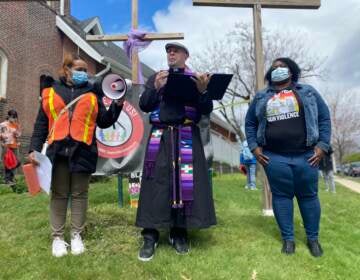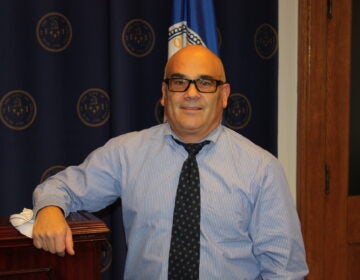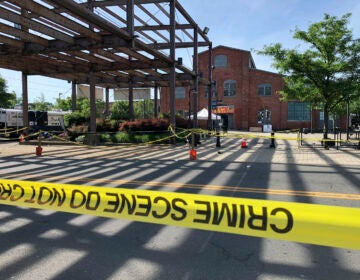New Jersey’s first Methodist church celebrates 250 years in Trenton
Turning Point United Methodist Church in Trenton kicks off a year long celebration of its 250th anniversary.
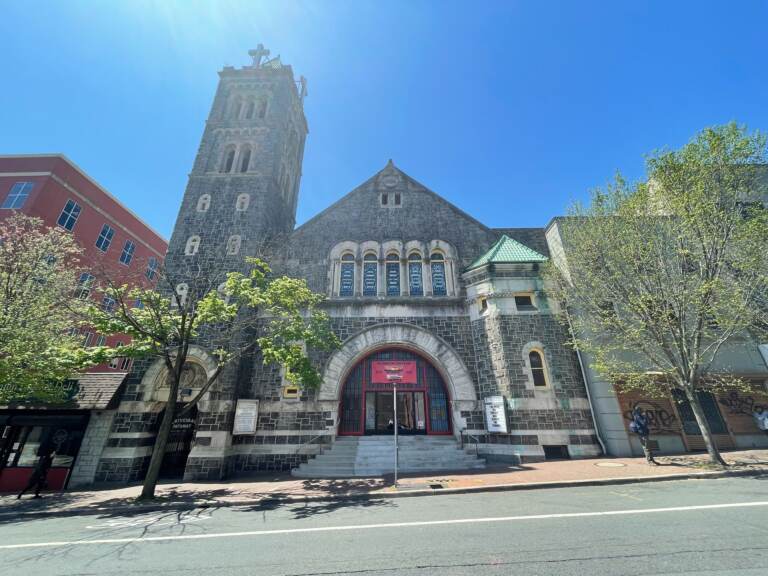
Turning Point United Methodist Church in Trenton, N.J. traces its history back to 1772. It has been located on South Broad Street near State Street since 1894. (P. Kenneth Burns/WHYY)
From Princeton to Cape May, what do you wonder about South Jersey, its people, and its culture that you want WHYY to investigate? Let us know here.
A lot of candles will be needed for the Turning Point United Methodist Church in Trenton, N.J. this weekend. That’s because it’s turning 250 years old.
On Sunday afternoon, they will sing some traditional hymns, have a praise dancer, a guest preacher – Bishop John Schol, resident bishop for the United Methodists of Greater New Jersey – and there will be cake.
The church’s pastor, the Rev. Rupert Hall Jr. said the service is the first major event in the yearlong celebration.
“Towards the fall of the year, we’re going to have a concert and at the end of the year, we’re going to have a banquet,” he said.

Turning Point traces its beginning back to the 1770s as the Trenton Society was first organized. The First Methodist Episcopal Church was established in 1772, the first Methodist church established in New Jersey. That’s four years before George Washington’s sneak attack on the British army occupying Trenton. It has been at its current location on South Broad Street in downtown Trenton since 1894.
Another church, St. Paul’s, was organized in 1890. By 2007, both churches had low membership. Hall said that urban ministry, overall, has faced challenges in recent times.
“If we look at some of the pictures back in the 20s and 30s, there was a concentration of population here within the city,” he said. “But ultimately with the flight to the suburbs, the population of churches – not just United Methodist Churches – dwindled.”
The decision was made to merge First Methodist with St. Paul’s. Turning Point would be the new name of the combined congregation. According to Hall, the name was chosen, in part, because of Trenton’s role in history.
“I’m told that there was a discussion that since Trenton was seen as a turning point in the American Revolutionary War, why don’t we use ‘turning point’ to tie in to that paradigm, but also that this place will be a turning point in people’s lives,” he said.
In a way, the paradigm is personified in Hall himself. The Maryland native who had a career as a commercial banker and a lawyer before ministry has been associated with the church since the end of 2007 teaching an adult Bible study class.
He eventually became a lay leader and was preparing to be a deacon when he was called to be a pastor. Hall was the shepherd at Groveville United Methodist Church in Hamilton Township for three years before he was installed at Turning Point in 2016.
“It is this congregation that affirmed my being fit for the ministry,” he said.
Through it all
In the back of the sanctuary are displays of First Methodist’s and St. Paul’s history, from their humble beginnings through the merger of the two congregations.
Some of the pictures displayed show the cornerstone of its current building being laid in place. Pictures also reflect how congregants were vastly white before the 20th century.
There is a shovel to commemorate the 150th anniversary of the church, the original subscription list of the first members of the church from 1772 and newspaper articles from when the church was among four that were the target of an arsonist.
The current sanctuary was rebuilt in 1958. The church’s stained glass windows have still not been cleaned from the fire.
“You can see that some attempts have been made to clean them,” Hall said. “But at some point they stopped.” He further explained that the ash on the windows was a sign of faith, that the church still stood despite being set on fire.
Turning Point has withstood arson, white flight and now the COVID-19 pandemic.
The membership is much more diverse, with about 100 members on the rolls. Prior to the pandemic, about 60 people would attend service. Hall said the numbers have fallen off, but people are starting to come back.
“We, on a given Sunday, will have maybe 35 in person and 30 or 35 online,” he said, adding one woman has faithfully logged on to watch services from Oakland, California which start at 6:30 a.m., Pacific Time.
“Invariably, she’s there and I use her as an example,” Hall adds. “She is here [very early] her time and you guys can’t get here at 9:30, what’s up with that?”
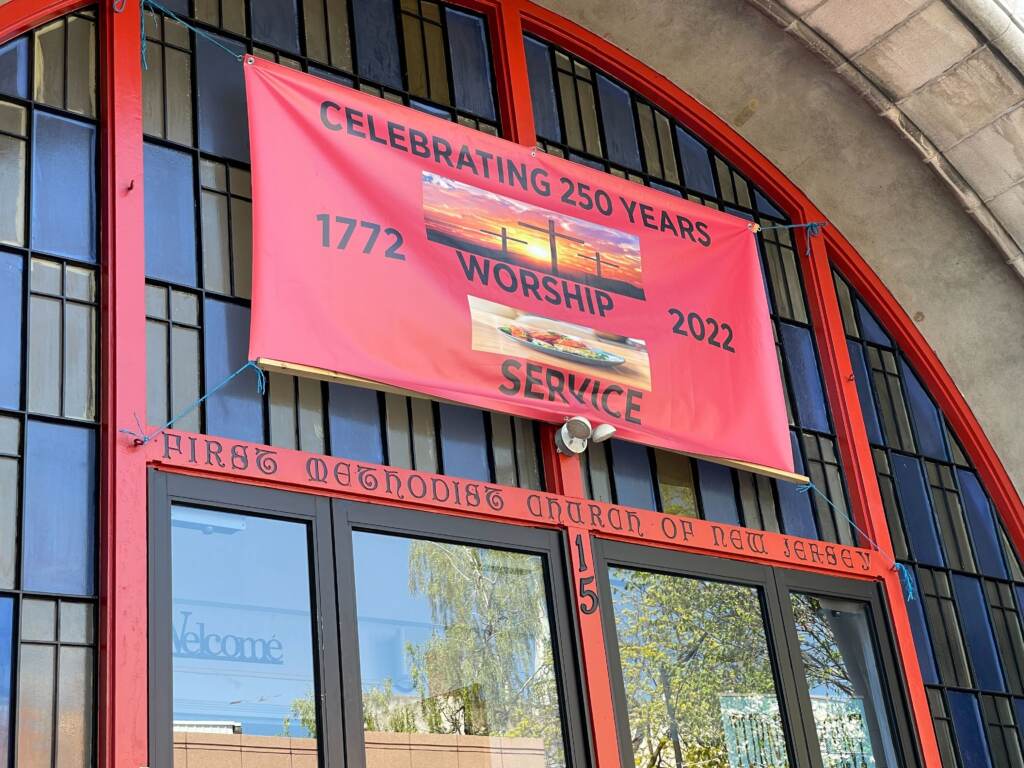
Service…after service
Turning Point prides itself on being active in the city, by collaborating with several organizations.
The Trenton Area Soup Kitchen served its first meal in the church’s fellowship hall in 1982. Hall has recently joined the organization’s board. It’s one of several churches that sponsors the Kingsbury’s Twin Towers housing complex. In addition, the church has a food ministry that has grown during the pandemic.
“One of the things that I am grateful to God for about a Turning Point is that we strive to be a relevant church with the heart for the city,” Hall said. “This building is just a place for worship. This is a place for celebration. But the church work takes place outside of these four walls.”
Hall said that many urban churches have deserted cities across the country. But Turning Point decided to stay where they’ve been for 250 years and be a part of Trenton.
“[Through] the ups and the downs, the ins and the outs, the good and the bad,” he said. “So much so that now we’re around the corner from Starbucks.”
WHYY is your source for fact-based, in-depth journalism and information. As a nonprofit organization, we rely on financial support from readers like you. Please give today.



